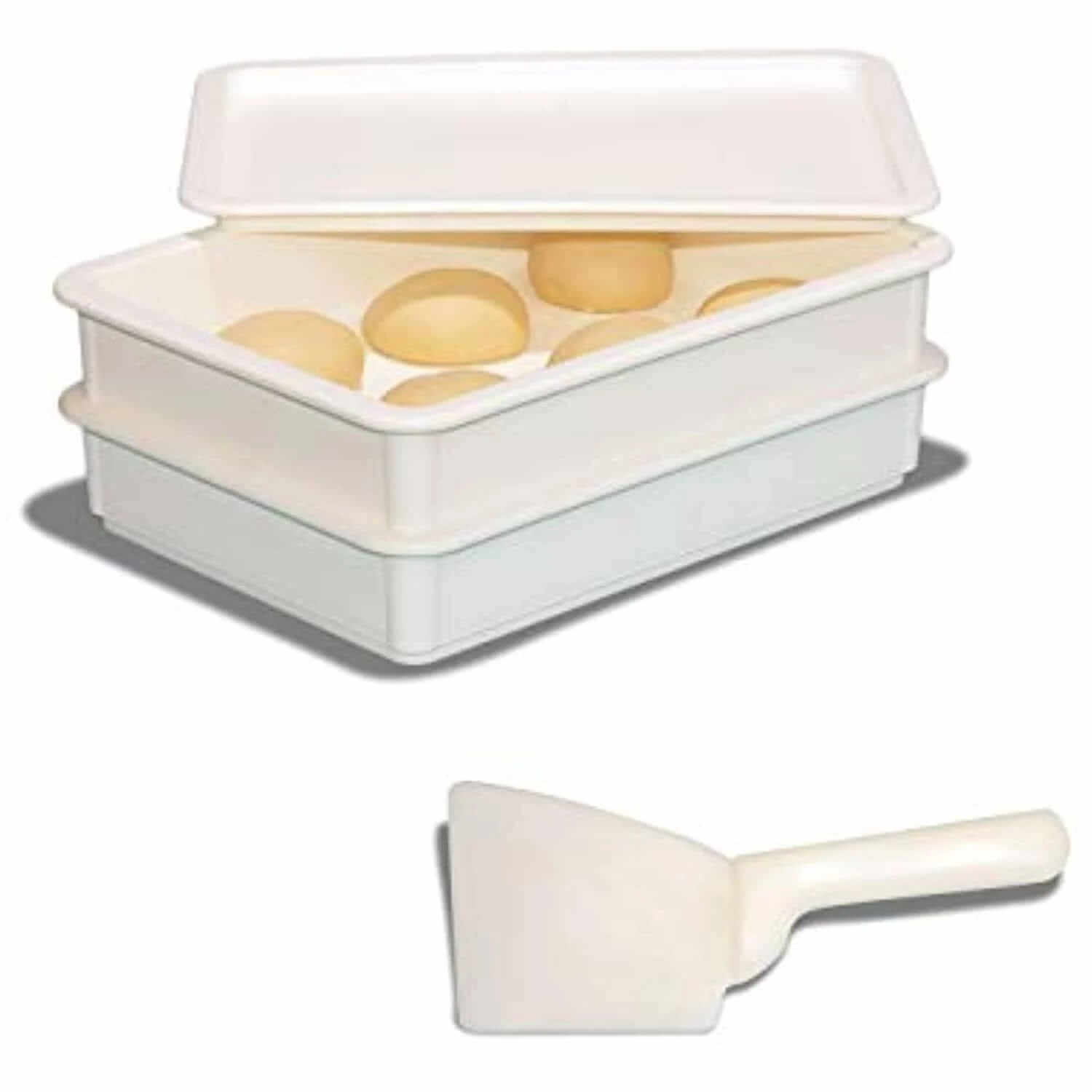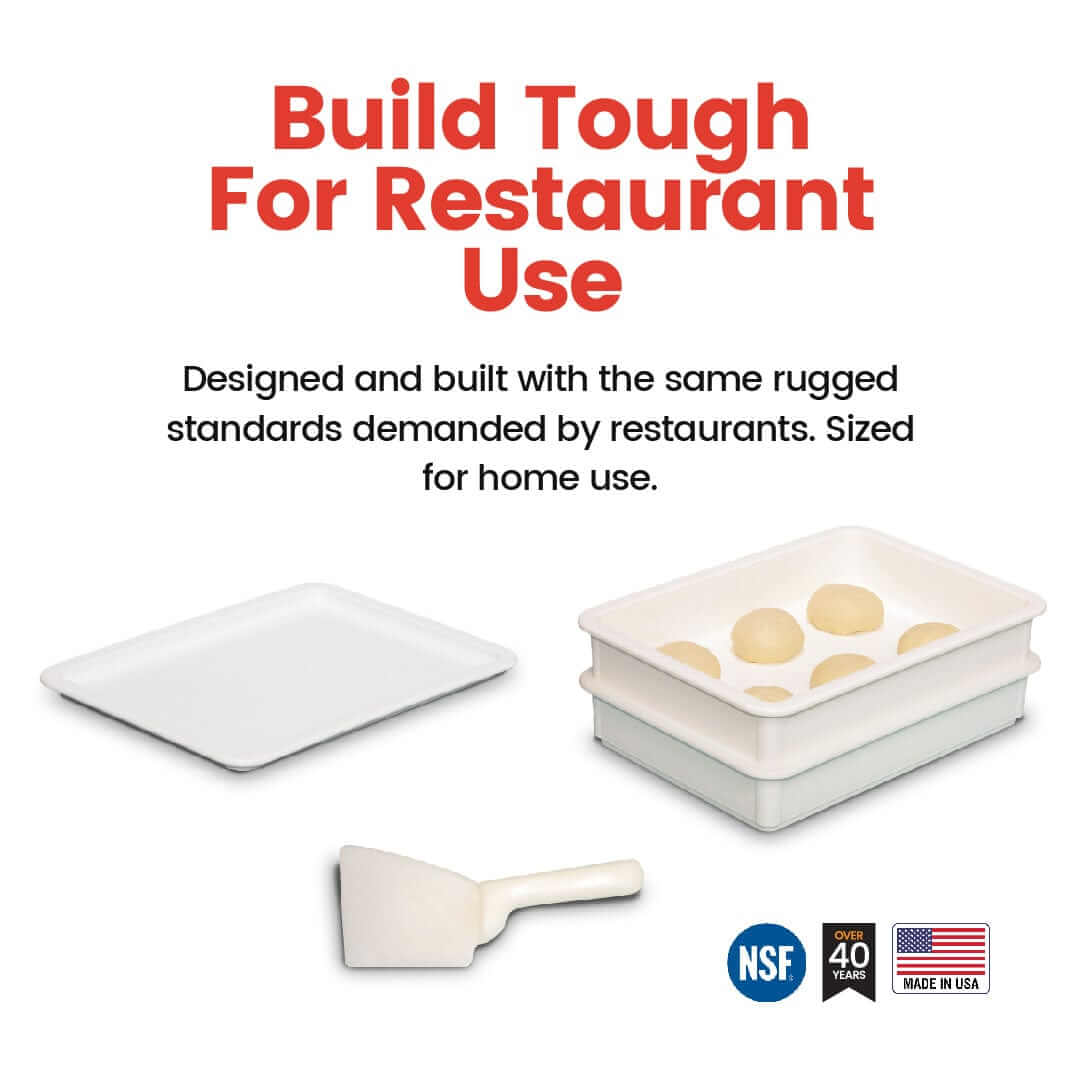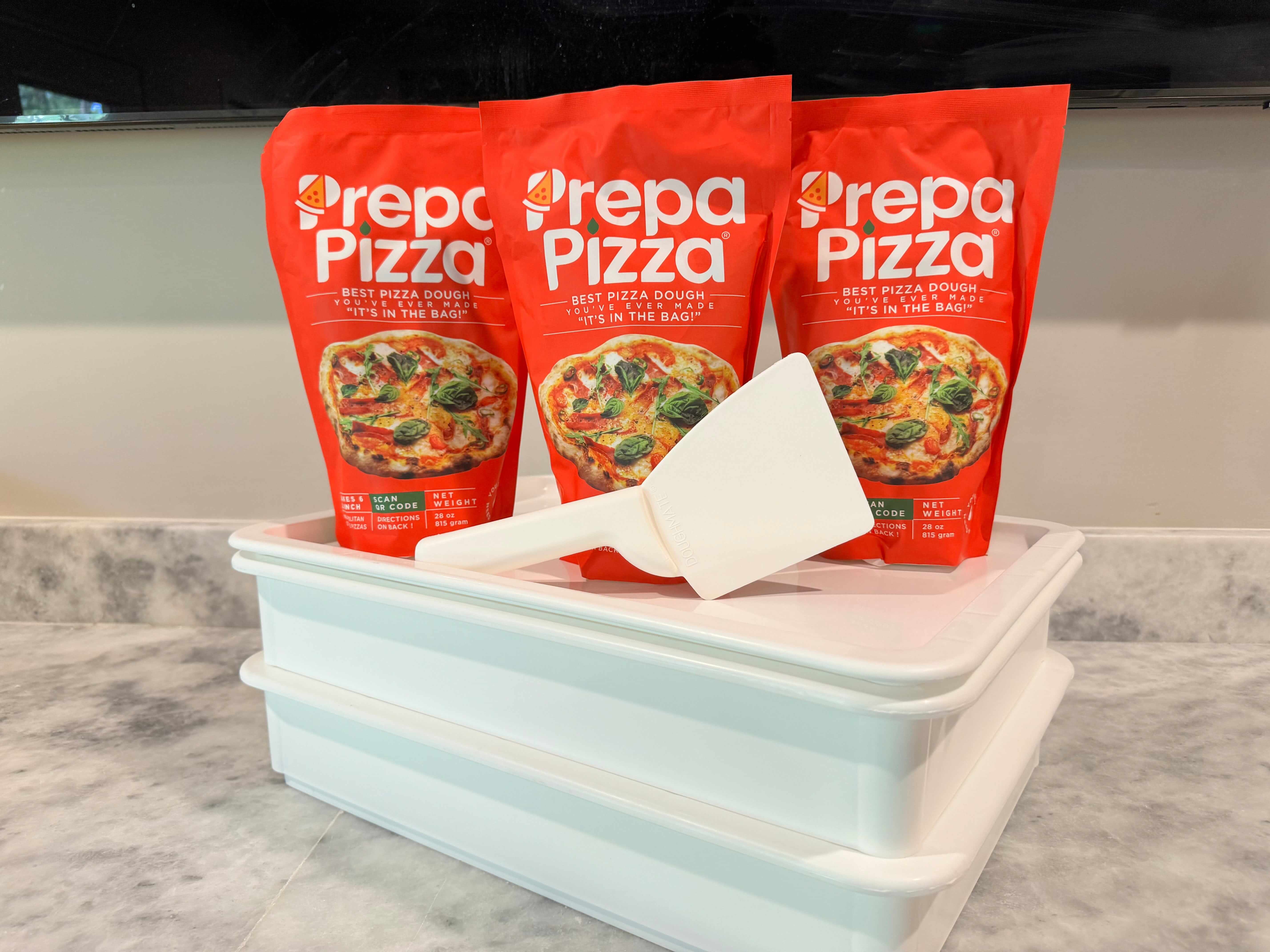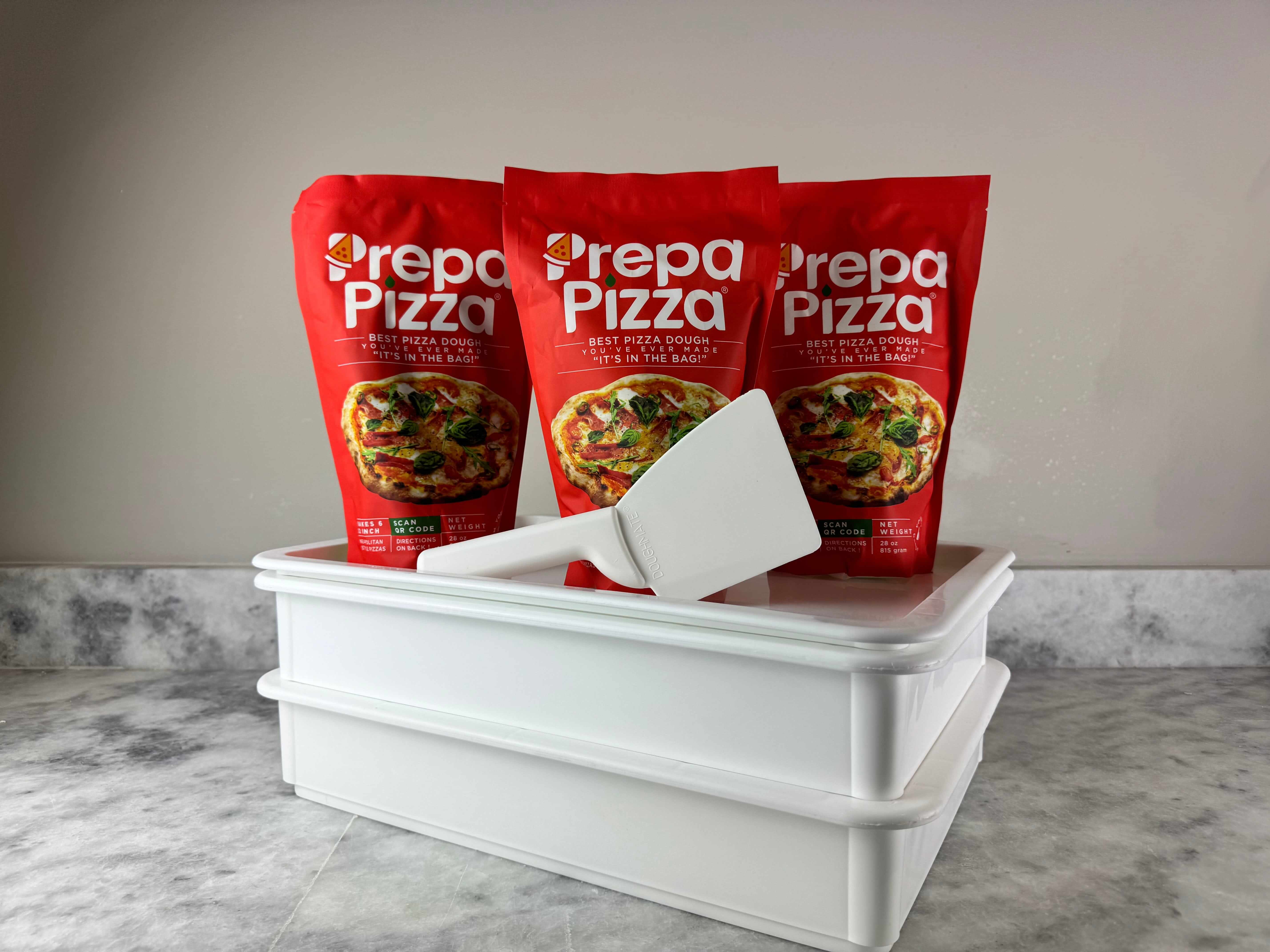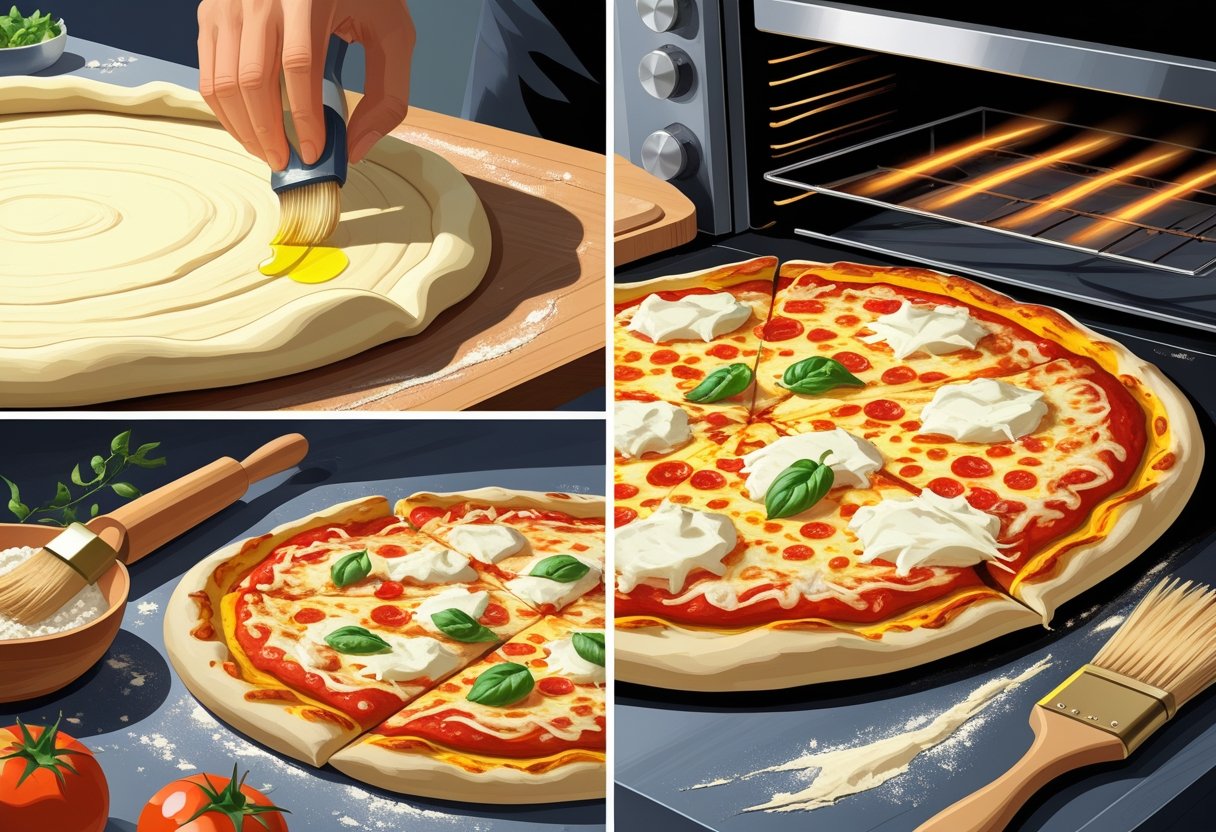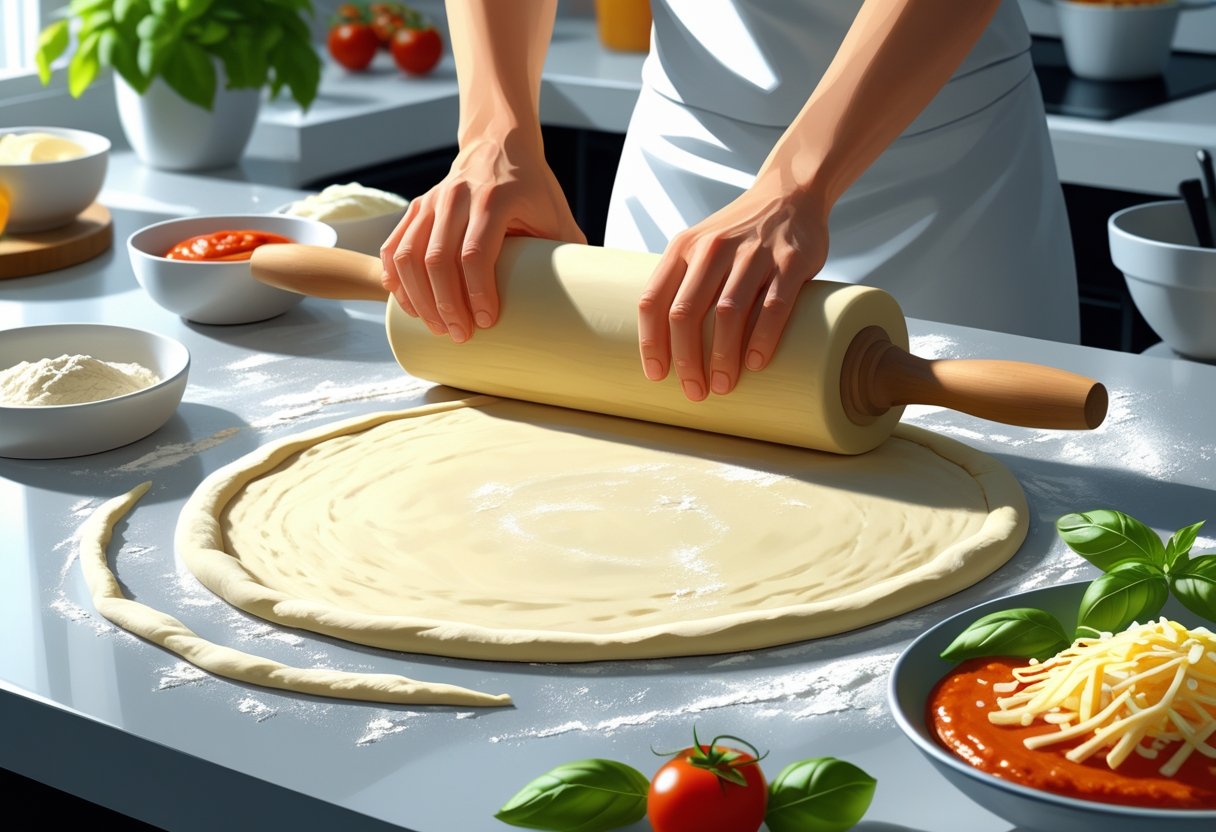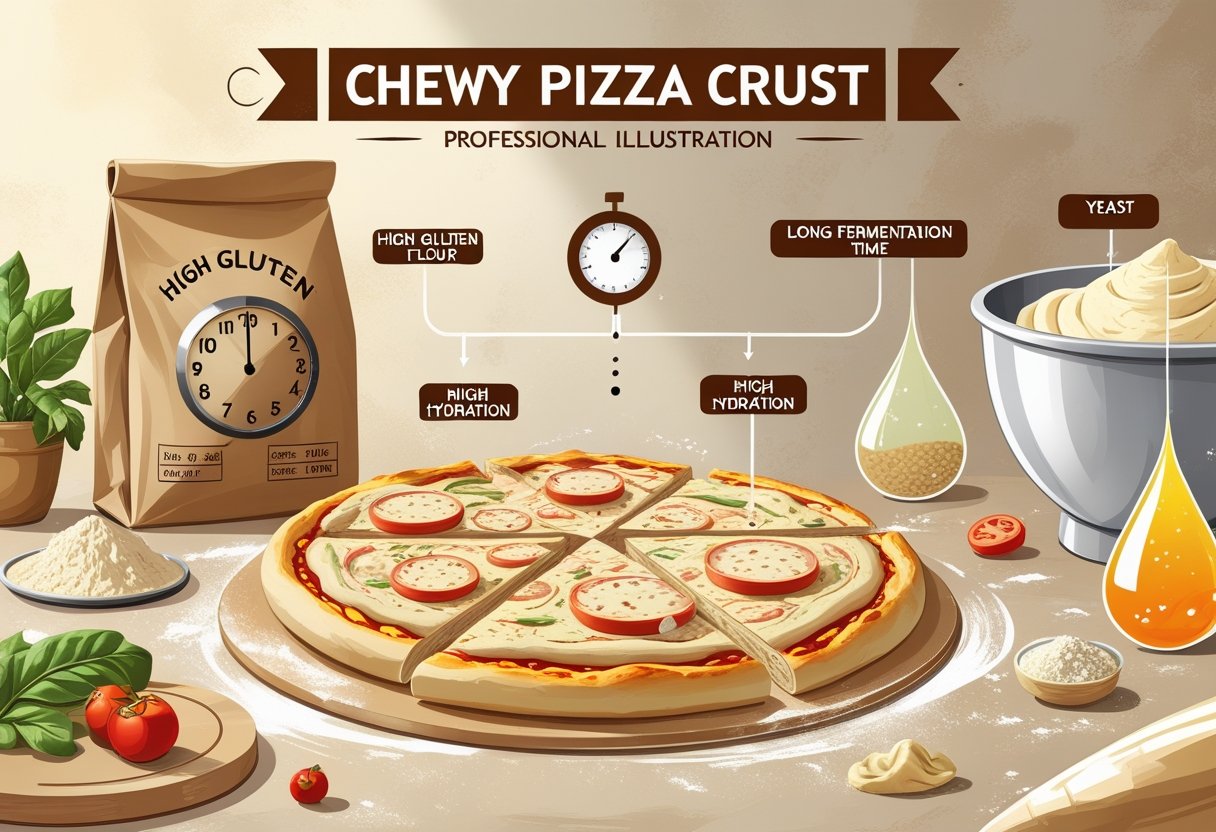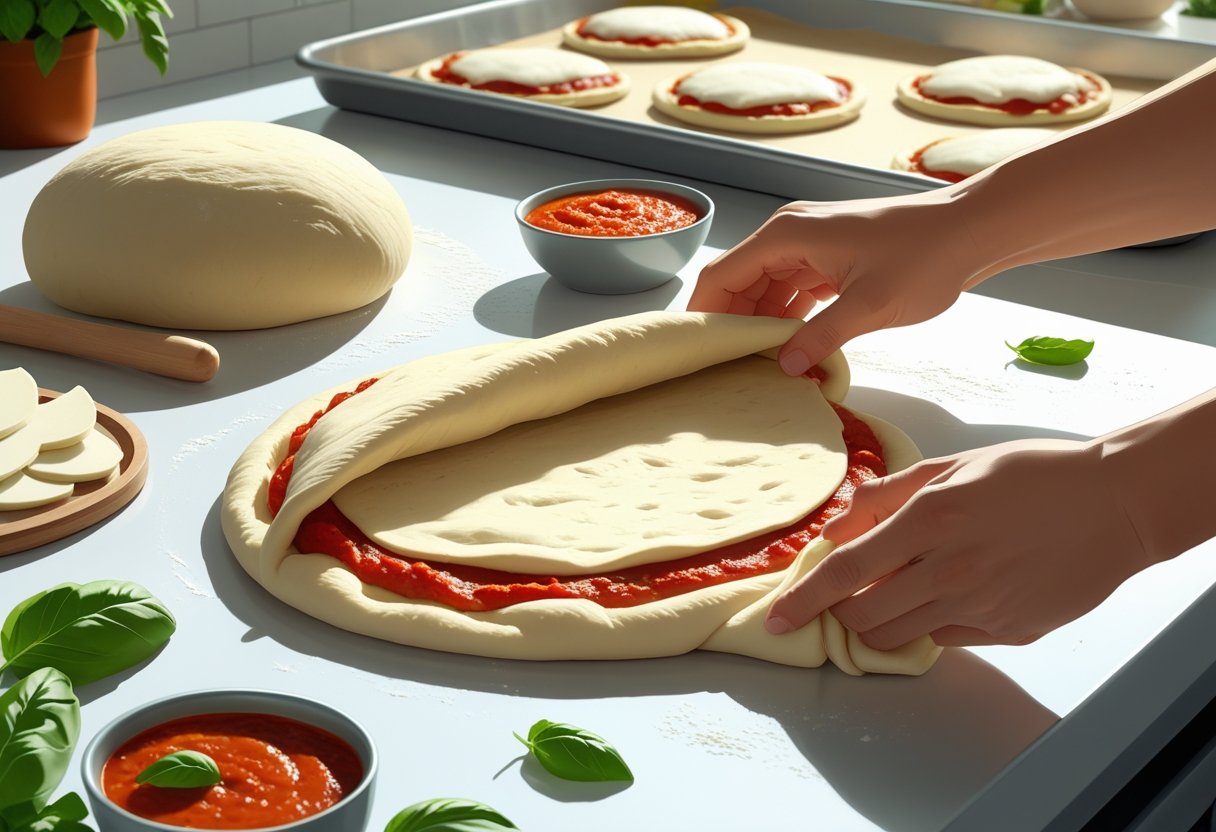
How Long Does Store Bought Pizza Dough Last: Storage Tips and Best Practices
When you bring home store-bought pizza dough, it’s important to understand how long you can keep it before it goes bad. Store-bought pizza dough typically lasts between 3 to 5 days in the refrigerator. This varies based on the brand and specific ingredients used, so always check the packaging for guidance.
At Prepa Pizza, we prioritize quality in our premade dough, designed to last while maintaining freshness. You can enjoy our Prepa Pizza dough for delicious homemade pizzas with confidence in its food safety and flavor.
Knowing how long your pizza dough stays fresh helps you make the most of your cooking experience and prevent food waste. Whether you're planning a cozy night in or a gathering with friends, being aware of this timeline ensures your pizza will turn out great every time.
How Long Does Store-Bought Pizza Dough Last?
When using store-bought pizza dough, it’s essential to understand the proper storage methods to maximize its freshness and safety. Prepa Pizza offers high-quality premade dough, ensuring delicious results. Knowing how long you can store it in various conditions helps maintain its quality.
Refrigeration Shelf Life
Store-bought pizza dough typically lasts 3 to 5 days in the fridge. Brands like Prepa Pizza utilize preservatives that help extend its shelf life, allowing you to enjoy it longer. For the best results, keep the dough in its original packaging or seal it tightly in an airtight container.
Check the “best by” date on the package as a guideline. If the dough develops an off smell or unusual texture, it's best to discard it. To ensure food safety, always refrigerate after purchase and keep the refrigerator at or below 40°F (4°C).
Freezer Storage Duration
Freezing is a great option to prolong the life of your pizza dough. When stored in the freezer, store-bought pizza dough can last up to 2 to 3 months. To freeze your dough, wrap it tightly in plastic wrap, then place it in a freezer-safe bag.
Label the bag with the date for easy tracking. When you're ready to use the frozen dough, transfer it to the refrigerator for 8 to 12 hours to thaw. Avoid refreezing thawed dough to maintain its quality and safety. For best results, use Prepa Pizza dough straight from the freezer within this timeframe.
Room Temperature Storage Limits
When storing pizza dough at room temperature, the key is time. You can keep store-bought pizza dough out for 4 to 24 hours, depending on the environment. Ensure it's in a cool area and tightly covered to prevent drying.
Be cautious with room temperatures, as warmer environments can promote bacteria growth. Once the dough has surpassed the 24-hour mark, discard it to ensure food safety. Keep in mind that using Prepa Pizza dough or similar products will yield the best results when adhering to these guidelines.
Factors Affecting the Shelf Life of Store-Bought Pizza Dough
Several factors can influence the shelf life of store-bought pizza dough. Understanding these elements can help ensure your dough remains fresh and usable for your pizza nights. Ingredients, packaging, storage conditions, and fermentation processes play significant roles in determining how long your dough lasts.
Ingredients and Formulation
The ingredients used in dough affect its longevity. Common components like flour, water, salt, and yeast vary in how they contribute to shelf life. For example, dough with high protein content tends to stay fresh longer, as proteins help maintain structure and moisture.
Prepa Pizza uses quality ingredients in its premade dough to enhance both flavor and durability. The specific balance of these ingredients can impact how well the dough holds up in refrigeration. Yeast, in particular, is a crucial factor since it ferments sugars, producing carbon dioxide. This process is essential, but it can also lead to spoilage if not managed properly.
Packaging and Airtight Containers
The manner in which dough is packaged significantly impacts its shelf life. Store-bought pizza dough marketed in airtight containers helps to minimize exposure to air and moisture. This is vital because air can lead to oxidation and drying out, while moisture can encourage mold growth.
When you choose Prepa Pizza's premade dough, it comes in sealed containers designed to maintain freshness. Make sure to check the packaging for any damages before using the dough. Proper sealing ensures that the dough stays in optimal condition for longer periods, usually around 5 to 7 days in the refrigerator.
Storage Conditions and Temperature
Storage conditions greatly influence how long your pizza dough lasts. Keeping the dough at a consistent, cool refrigerator temperature is essential. Ideally, the fridge should be at or below 40°F (4°C). Fluctuating temperatures can lead to compromised quality, causing the dough to spoil more quickly.
Additionally, monitor the dough for any signs of change, such as texture or color. Store it in a suitable location where it won’t be jostled. For example, moving it closer to the fridge door can expose it to warmer air each time the door opens. The closer to the back, the more consistent the temperature.
Over-Fermentation Risks
Over-fermentation is another critical factor that can shorten the shelf life of pizza dough. When the dough ferments too long, the yeast becomes overly active, leading to excessive gas buildup. This can cause the dough to rise excessively and then collapse, affecting texture and usability.
When using Prepa Pizza dough, be mindful of the expiration date and recommended usage timeline. Follow storage instructions carefully to prevent over-fermentation. If you notice an unusually sour smell or significant changes in the texture, it’s best to discard the dough to ensure quality for your pizza creations.
How to Properly Store Store-Bought Pizza Dough
Proper storage of store-bought pizza dough is essential for maintaining its quality and extending its shelf life. Using premium quality dough, like that from Prepa Pizza, ensures you enjoy optimal flavor and texture. Here are key practices for storing pizza dough effectively.
Best Fridge Storage Practices
Storing pizza dough in the fridge is a straightforward process. Generally, store-bought dough should last between 3 to 5 days in the refrigerator.
- Keep it Cool: Always refrigerate as soon as possible after purchasing.
- Check the Sell-By Date: Ensure you use or freeze it before this date.
For best results, place it in its original packaging or wrap it tightly in plastic wrap. This prevents the dough from drying out and helps maintain moisture. Store it on a middle shelf to ensure stable temperatures.
Freezing and Thawing Techniques
If you plan to keep pizza dough for more than a week, freezing is your best option. You can freeze store-bought pizza dough for 3 to 4 months without compromising quality.
- Preparation for Freezing: Divide the dough into portions suitable for your pizza sizes. Dust with flour to avoid sticking.
- Freezing: Place the portions in airtight containers or freezer bags, removing as much air as possible.
When ready to use, transfer the dough to the fridge to thaw overnight. Avoid rapid thawing in the microwave, as this can alter the texture.
Using Airtight Containers
Using airtight containers is crucial for preserving the freshness of pizza dough.
- Choose the Right Size: Select a container that fits your dough snugly to minimize air exposure.
- Seal It Well: Make sure the lid is securely closed.
This method helps prevent the dough from absorbing odors from other foods and protects it from freezer burn if freezing. It's an excellent way to keep your dough safe when stored in the fridge or freezer.
By following these storage practices, you'll maintain the quality of your Prepa Pizza dough, ensuring a delicious pizza-making experience every time.
Recognizing Signs of Spoilage in Store-Bought Pizza Dough
Identifying spoilage in store-bought pizza dough is crucial to ensure safety and quality. Knowing what to look for can help you avoid using dough that may not be fit for consumption. Prepa Pizza's premade pizza dough is designed to provide a fresh experience, but it’s important to recognize signs of spoilage to maintain safety.
Mold and Discoloration
Mold can appear as green, white, or black spots on the surface of the dough. If you notice any signs of mold, it's best to discard the dough immediately. Discoloration, such as dark or off-color patches, may also indicate spoilage. Fresh dough should have a consistent color throughout. It’s advisable to inspect the dough visually before use, as any mold or unusual spots are clear indicators that it has gone bad.
Off Smells, Including Sour Smell
When assessing your pizza dough, pay close attention to any unusual odors. A sour or rancid smell is an indication that the dough has fermented or spoiled. Fresh dough smells mild and pleasant, while off smells signal that the quality has diminished. If you detect any unpleasant odors, it’s best to err on the side of caution and dispose of the dough. You should always trust your nose when it comes to food safety.
Changes in Texture, Such as Sticky Texture
The texture of pizza dough is another important sign of spoilage. Fresh store-bought pizza dough from Prepa Pizza should feel smooth and pliable. If the dough appears overly sticky or gooey, it may be a sign that it has started to break down or ferment. This change can affect how the dough performs when stretched or rolled out. Always check the consistency before using; if it doesn’t feel right, it’s a good idea to discard it.
Foodborne Illness Concerns
Using spoiled dough not only affects the quality of your pizza but can also pose health risks. Consuming dough that shows signs of spoilage increases the risk of foodborne illness. Symptoms may include nausea, vomiting, and stomach cramps. To avoid these concerns, always inspect your dough for mold, off smells, and changes in texture. Taking these precautions will help ensure a safe and enjoyable cooking experience.
By being vigilant about these signs, you can enjoy the deliciousness of Prepa Pizza’s premade dough while ensuring safety in the kitchen.
Using Store-Bought Pizza Dough Beyond Pizza
Store-bought pizza dough offers versatility beyond just making pizza. You can create a variety of delicious dishes with it, adding value to your meals. With Prepa Pizza’s premade dough, you ensure a quality base for these creative culinary adventures. Discover how you can transform your pizza dough into different treats.
Making Calzones and Breadsticks
Calzones are a fantastic way to utilize store-bought dough. Simply roll out the dough, fill it with your choice of cheese, meats, and veggies, and fold it over. Seal the edges with a fork to keep the fillings inside. Bake until golden brown for a satisfying meal.
Breadsticks are another simple option. Roll the dough into long strips, brush with olive oil, and sprinkle with garlic salt or herbs. Bake until they’re crispy on the outside but soft on the inside. Both options can be customized to suit your taste.
Creative Uses for Leftover Pizza Dough
If you find yourself with leftover pizza dough, don’t let it go to waste. There are several creative ways to use it.
Consider making small pizza bites or dough balls. Cut the dough into smaller pieces, fill with cheese or your favorite toppings, and bake. Alternatively, roll the dough thinly and cut it into strips for baked pasta-inspired snacks. You can even experiment by making mini quiches by filling small rounds of dough with egg and vegetables.
Leftover dough can be refrigerated for a short time, but it's best to use it promptly to prevent drying.
Comparing Fresh and Homemade Pizza Dough
When using Prepa Pizza’s premade dough, you'll notice a difference in convenience and quality compared to homemade options. Fresh pizza dough requires time and skill to prepare, while premade dough saves effort and ensures consistent results.
Many appreciate the restaurant-quality characteristics of Prepa Pizza dough. It is easy to manipulate and bakes evenly, providing a great texture that elevates your dishes. Fresh dough might require practice to achieve a perfect crust, while the premade option simplifies the process with guaranteed quality. Enjoy the ease and flavor of using premade dough for your culinary creations.
Frequently Asked Questions
Understanding how long store-bought pizza dough lasts is crucial for maximizing freshness and flavor. Below are common inquiries about storage times and signs of spoilage for premade pizza dough from Prepa Pizza.
How long can you keep premade pizza dough in the fridge before it goes bad?
You can typically store Prepa Pizza's premade dough in the fridge for up to five days. This timeframe depends on the specific ingredients and packaging. Ensure you check the expiration date on the packaging.
What is the maximum freezer storage time for pizza dough before it loses quality?
When frozen, pizza dough can last for up to three months without losing quality. For the best results, store it in an airtight bag or container to prevent freezer burn.
How can one tell if pizza dough has spoiled?
Signs of spoiled pizza dough include an off odor, discoloration, or a change in texture. If the dough develops a slimy or overly dry appearance, it's best to discard it.
What are the risks of consuming pizza dough past its expiration date?
Consuming pizza dough past its expiration date can lead to foodborne illness. Ingredients may degrade over time, leading to possible spoilage and increased risk of bacterial growth.
Is there a difference in shelf life between opened and unopened pizza dough?
Yes, opened pizza dough typically has a shorter shelf life compared to unopened dough. Once opened, it should be consumed within three to five days to ensure freshness. Unopened dough can last longer when stored properly.
What is the recommended duration for leaving pizza dough at room temperature?
Pizza dough should not be left at room temperature for more than two hours. If the dough is fermenting or rising, it’s advisable to keep an eye on it and return it to the fridge if not using immediately.




